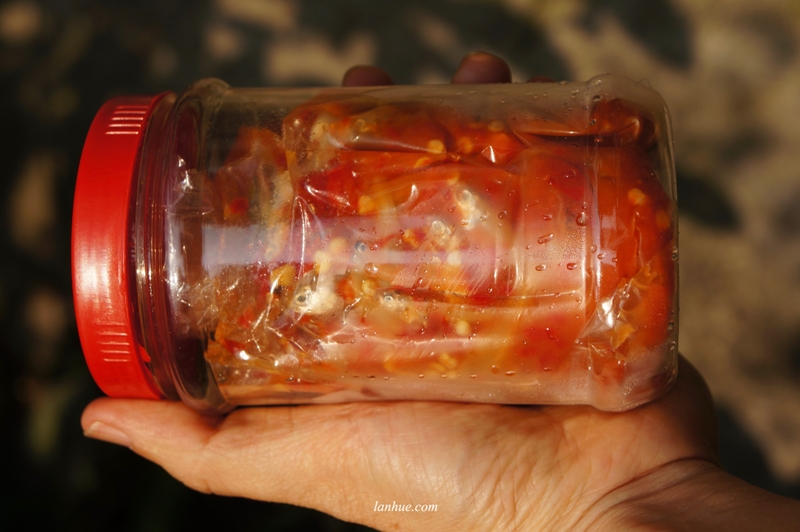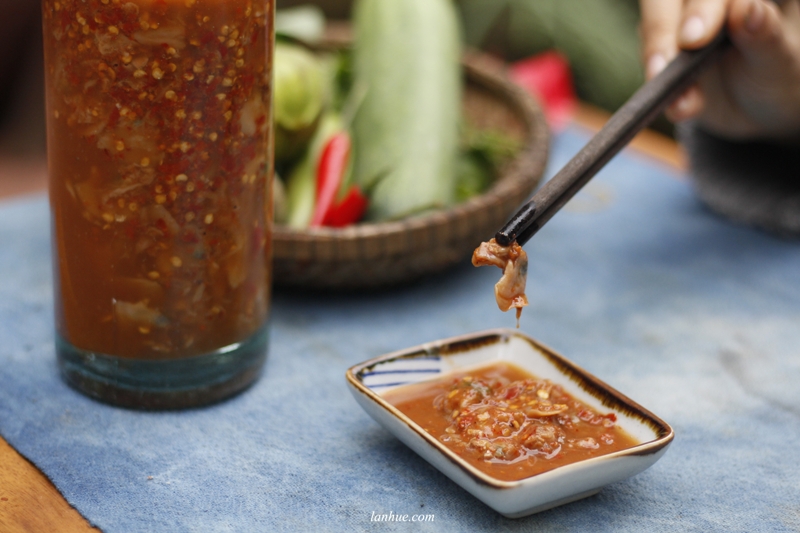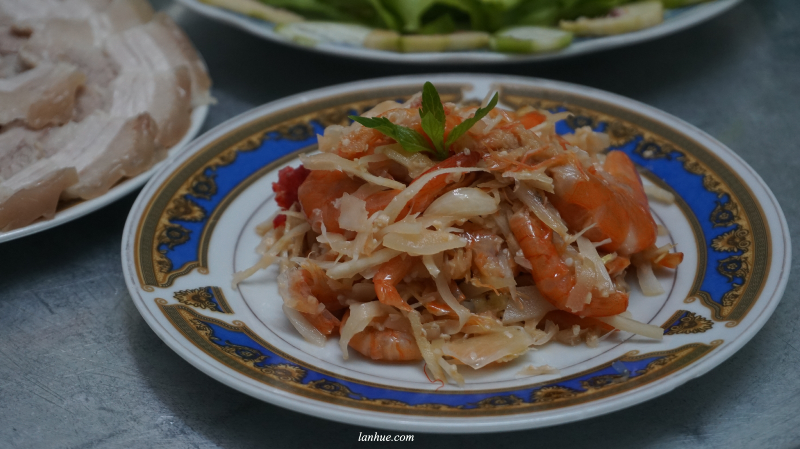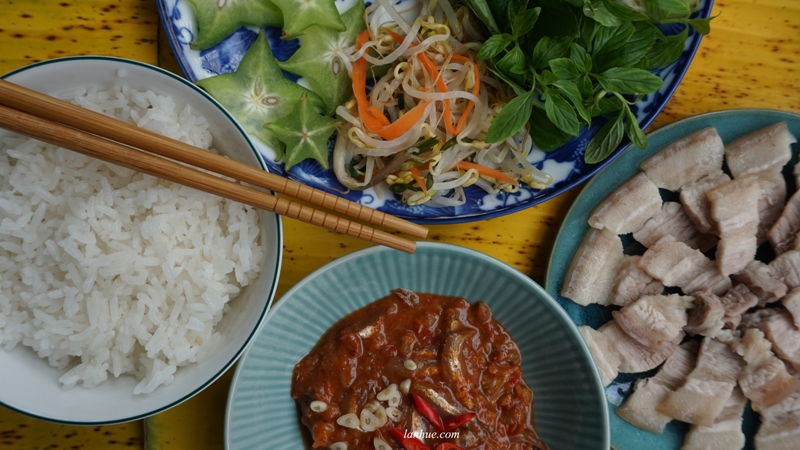Once an American friend teased me that I was too salty, I almost wanted to fire back, “Well, I’m also chua cay (which means “sour and spicy”, or “unpleasant”) because I have been eating too much dưa and mắm since I was a little girl,” but I held it back as I didn’t think he understood the joke.
While dưa is pickled vegetables, mắm is usually fish or other seafood which are fermented. Sometimes mắm is a mixture of fermented fish and vegetables as well. Like many other fermented dishes around the world, dưa and mắm are environment-friendly as they can be cooked without fire, and stored for weeks or even months.
Dưa
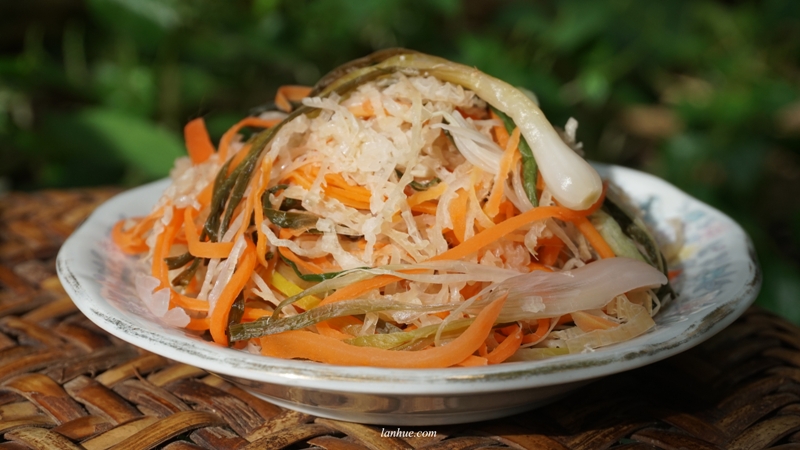
Dưa looks simple to make as all you need to do is to mix vegetables with a little salt but in fact it is not that easy. It’s believed that, with the same technique and ingredients, only those with “dưa-making hands” can make it successfully, the rest fail to do it. This is still a mystery to me. How can such a simple technique of salting vegetables go wrong?
A good dưa is mildly sour, fresh and slightly chewy while the bad one tastes rotten. Most of the dưa are ready to serve after being rinsed with warm water and drained by squeezing to eliminate its saltiness and to reduce the sourness. Dưa accompanied with nước mắm ớt tỏi (fish sauce mixed with finely chopped garlic and red chilli pepper) is a simple and delicious side dish in Vietnamese families’ meals. Dưa also goes really well with fatty food such as roasted or steamed pork belly so it becomes more popular at Tết (the Vietnamese New Year) feasts when our table are packed with high-protein dishes. This combination is a good example of how the Vietnamese practise yin-and-yang theory in cookery.
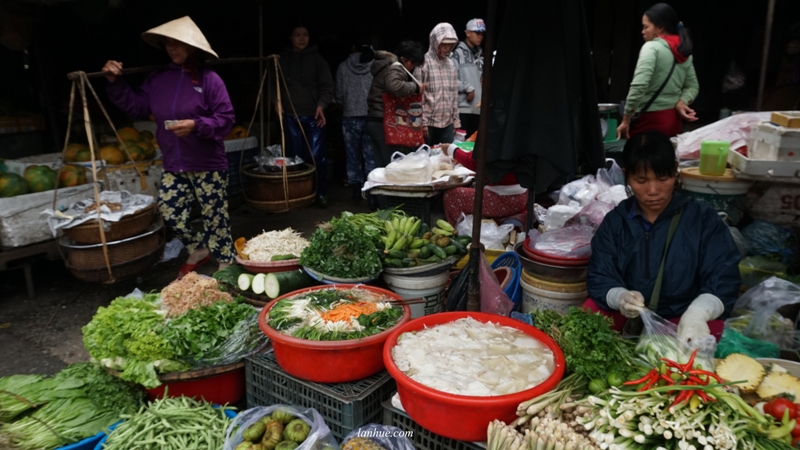
It takes about 2 or 3 days for dưa to be fermented and it can be preserved for weeks so we usually start to pickle the vegetables a few days before Tết. Don’t worry if you don’t have “dưa-making hands” or if you’re too busy to make it as different kinds of dưa are abundant for sale at any traditional markets or supermarkets. They are expected to be in high demand during this special occasion.
Dưa is a side dish but it is also a great ingredient to make a stir-fry or a sour clear soup. I love to stir-fry dưa cải (pickled mustard leaves) with shrimp or beef and cook sour clear soup with beef or fish, tomato and fermented bamboo shoot slices.
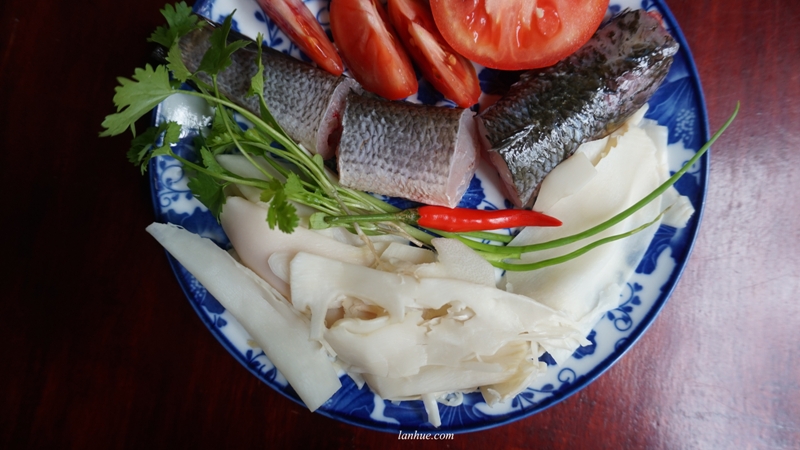
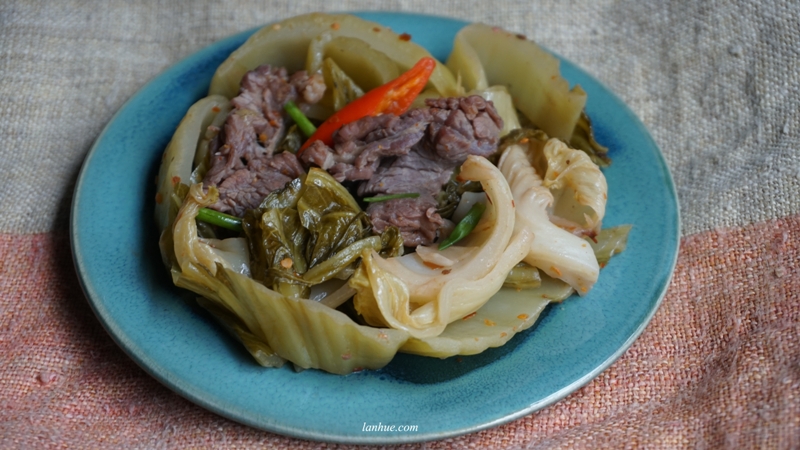
I savor all kinds of dưa but my frequent one is dưa môn (salted taro stalk) or dưa giá (fermented mung bean sprouts and carrots), and my favorite is dưa chuối (pickled banana trunk). Dưa chuối sounds weird but it looks beautiful and tastes fresh and appetizing. To make it, people chop a young banana tree, slice the inner portion of its trunk, rinse it with a solution of fresh water, lime juice and a little sea salt to eliminate its sap, and then mix it with sliced carrot, knotted kiệu (a kind of shallot) and sea salt. Like dưa giá, the lovely color combination of white, orange and green in dưa chuối is truly lively and eye-catching. I guess I favor dưa chuối because it reminds me of my childhood when I found a paradise on earth just by eating hot steamed rice with dưa chuối dipped in spicy fish sauce. Dưa chuối is no longer popular nowadays.
Mắm
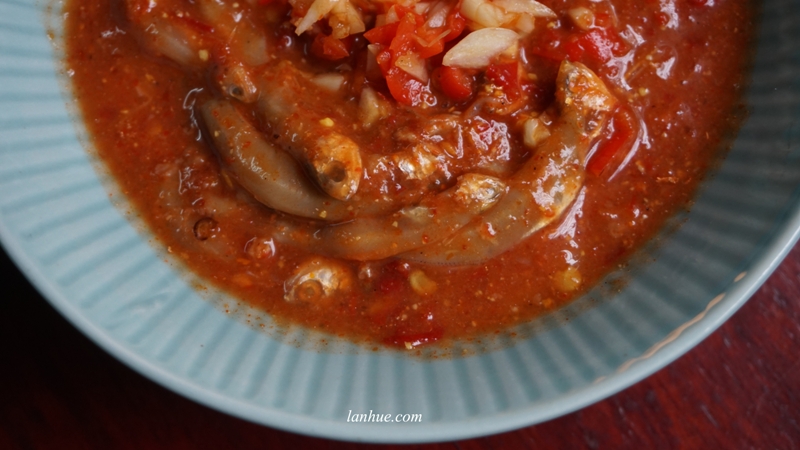
While dưa is quite quick to make, fermenting mắm is quite time-consuming so not many people make it at home. Luckily, like dưa, mắm is also available at many markets in Việt Nam. Apart from salt and fresh fish or seafood, the additional ingredients to make mắm savory are red chilli peppers, galangal, garlic and sugar. Huế people love spicy food so their mắm is surely mixed with a lot of red chilli peppers.
Mắm is made of fresh fish and other seafood such as rò (a kind of baby fish living in brackish water), mackerel, anchovy, or shrimp, etc. If the fish or shrimp is tiny, we can eat from its head to tail including its bone once it’s fermented; therefore, the mắm itself is a nutritious side dish which is packed with protein and calcium.
Mắm and steamed rice alone are great companies but if you pair them with sliced cucumber, some herbs and steamed pork belly, this combo makes the best simple and nourishing meal in Vietnam’s culinary history. Mắm is modest but so popular that even Emperor Gia Long, the founder of Nguyễn Dynasty (1802-1945), was believed to include mắm in his main meals. I have no doubt about it. I even think that his successors also appreciated it as much as I do.
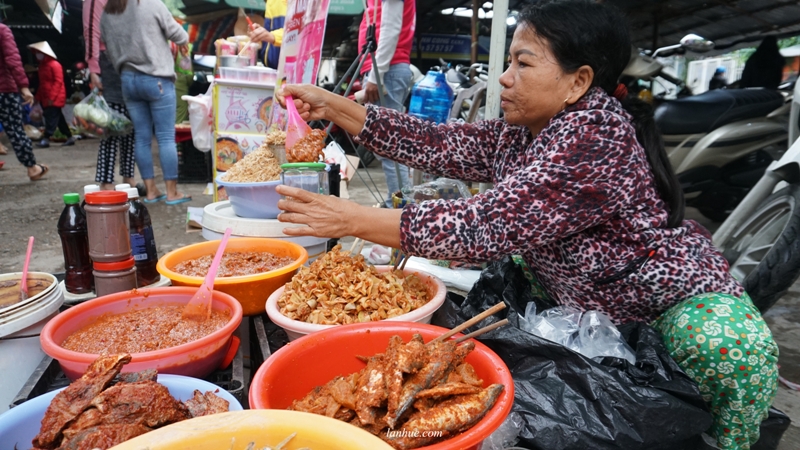
Mắm is good enough to serve cold once it’s fermented but I sometimes heat it with hot oil, chopped garlic, red chili pepper and shallot. For those who try mắm for the first time, I would suggest that they choose the latter way of eating this fermented food as it’ll smell less strong and will be easier for your stomach.
For me, the person who made the best mắm in Huế is Mệ Thơ, my history teacher’s wife. It was the best as it tasted authentic and most importantly it was fermented with love. She knew I loved mắm badly so she always saved some for me when she made it for her family. Whenever I visited my teacher at their home, by the time I sat down by the tea table overlooked into their front yard, she would show up from the kitchen and, with a gentle smile she would say: “Today I have mắm, stay and have a meal with us.” While she was preparing the table, my teacher would walk into the garden and pick up some buds of mưng/lộc vừng (freshwater mangrove trees) or green star-fruits as they go very well with mắm. Sometimes watching me devouring her mắm with steamed rice, she would repeat her oh-so-old remark, “Làm răng mấy thằng Tây hắn dám tới gần con hả con?” (How do any Western guys dare to get close to you, my child?) Her joke implies that mắm is always stinky as my eating habits stay traditional. The last time she was hospitalized for her serious heart disease, she asked her daughter Hạnh to call me to the hospital so that she could give me a jar of mắm that she bought and some fresh green star-fruits from her garden. She was too sick to make mắm but she didn’t forget that I loved it. She passed away a few months later and brought with her the secret of making the authentic mắm to heaven, and her beloved star-fruit tree also died not long after that.
By the time I thought that I could never eat home-made mắm the same way again, I discovered that my friend Mỹ could make mắm from shrimp and bamboo shoots. She learns it from her mother-in-law. “It’s very time-consuming and meticulous to make it. I spend about half a day to prepare a one-litre jar of tôm chua (fermented shrimp) and wait for a week for it to turn ripe,” Mỹ said. With that, I always remind myself to eat her tôm chua with appreciation and without waste.
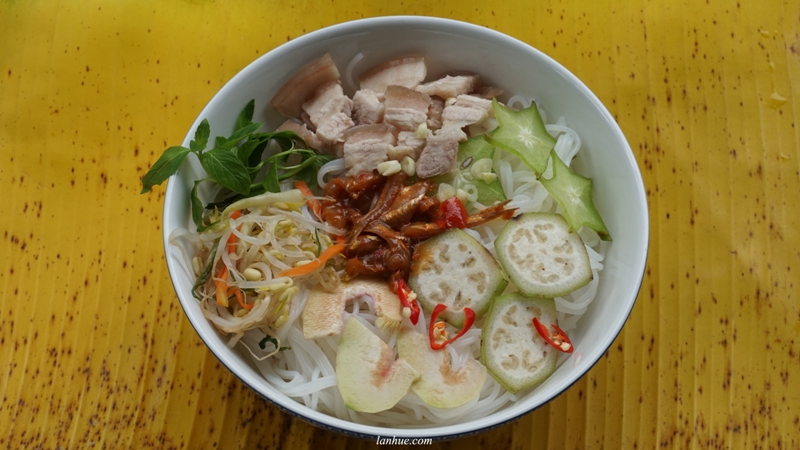
There are a few dishes that combine both dưa and mắm together such as bún mắm. It’s a delectable bowl of rice noodles, steamed or roasted pork belly, dưa giá, mắm, different kinds of herbs and red chilli pepper paste.
Each country has some typical foods that its people are proud of. For Việt Nam, dưa and mắm are among them.
These are some of popular kinds of mắm in Huế City:
